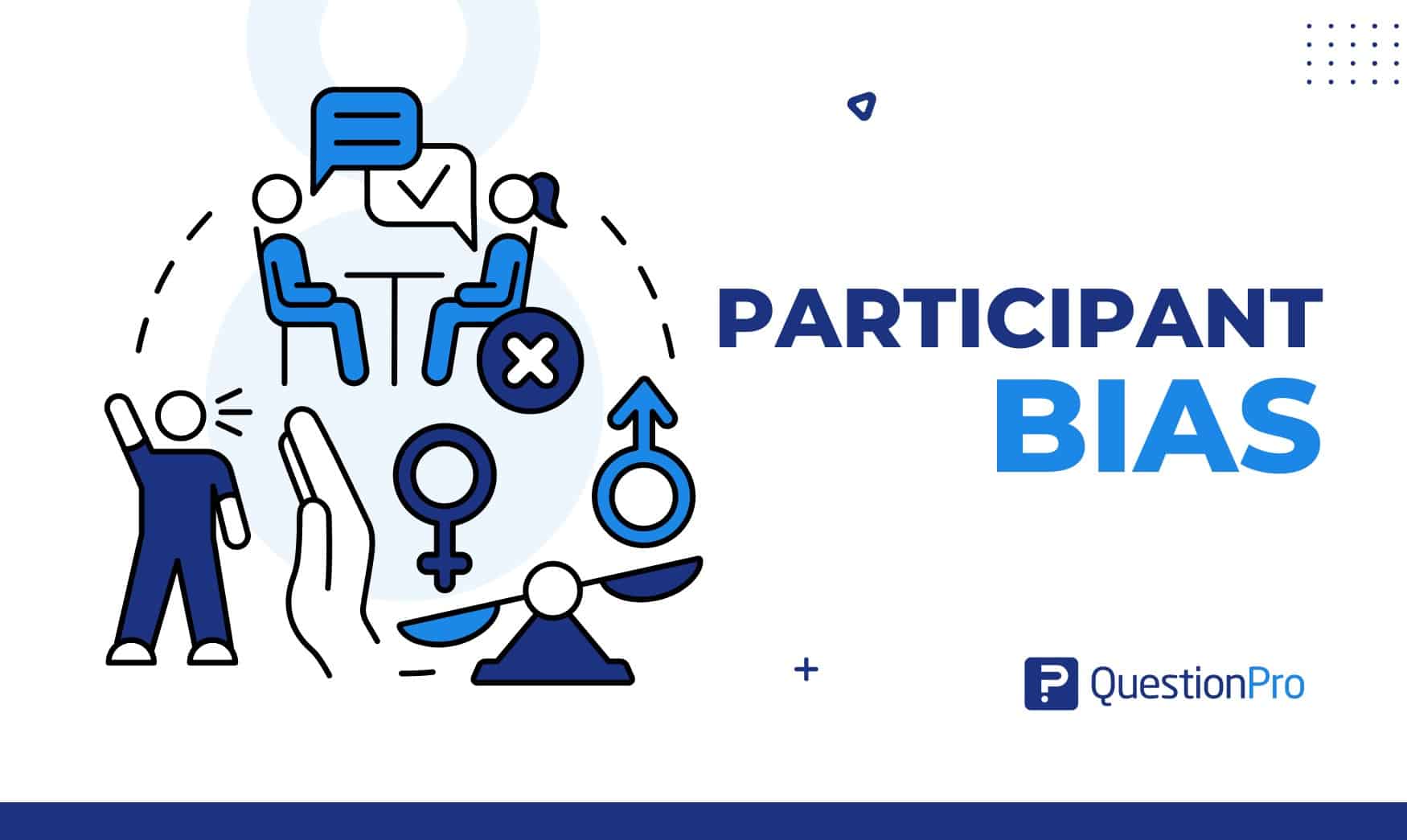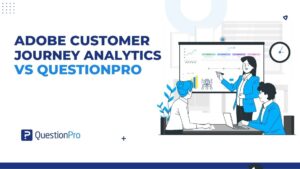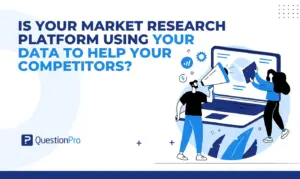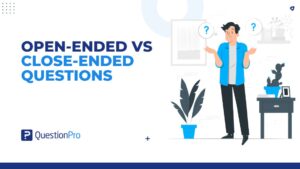
Imagine you’re playing a game and know someone is watching you. You might act a little differently, right? That’s a bit like what happens in research. When people know they’re being studied, they might not act entirely like they usually would. This is called participant bias.
Participant bias is like a silent guest at the research table, influencing responses in ways we might not notice. It happens when people in studies change their answers to match what they think researchers want rather than being true to themselves.
In this blog, we’ll take a journey to understand participant bias, explore its types, and discover how to kick it out of our research adventures. So, let’s dive in together!
What is Participant Bias?
Participant bias occurs when people in a study unintentionally influence the results. Instead of being their true selves, participants might change their behavior or responses based on what they think the researchers want.
In other words, research participants may alter their behavior, consciously or unconsciously, to align with perceived expectations rather than providing genuine or unbiased responses. This can impact the accuracy and reliability of study results.
Researchers use various research methods, such as blind studies and minimizing demand characteristics, to reduce the impact of participant bias and ensure more accurate and reliable findings.
Importance of Addressing Participant Bias
Addressing participant bias is crucial in various research, survey, or experimental settings as it directly impacts the validity and reliability of the findings. Participant bias refers to the systematic errors introduced into research outcomes due to the characteristics of the participants in a study. Here are some key reasons highlighting the importance of addressing participant bias:
- Accurate Information: Think of research like a detective solving a case. If people don’t tell the truth, it’s like hiding important clues. Dealing with participant bias helps researchers get the right information.
- Fair Representation: Everyone’s opinion matters, and researchers want to hear from different people. Some groups might be heard more than others if bias isn’t fixed. To ensure that everyone’s voice is equally important, you have to detect participant bias.
- Better Decision-Making: Research helps people make smart decisions. If the information is not right, the decisions might be wrong, too. Handling participant bias gives us better information for making good choices.
- Building Trust: Just like a shaky bridge is not trustworthy, biased data makes research less believable. Dealing with participant bias makes research stronger and more trustworthy for everyone.
What Causes Participant Bias?
Understanding the causes of participant bias is crucial in enhancing surveys and comprehending research participant behaviours. Let’s take a simple stroll through the causes behind this mystery, known as participant bias.
Social Desirability Bias
One major cause of participant bias is the tendency for individuals to provide answers that they believe are socially acceptable or favorable. This desire to fit in or be perceived in a positive light can lead to responses that may not truly reflect their opinions or behaviors.
Demand Characteristics
People in a study can sense what the researchers are looking for and change how they answer. We call these demand characteristics. Participants might adjust what they say or do to match what they believe the researcher wants, and this can accidentally affect the study results.
Order Effects
The order in which questions are presented can impact participants’ responses. For example, if a survey asks about satisfaction before inquiring about specific experiences, participants may be influenced by the initial positive focus, leading to biased responses.
Sampling Bias
Sampling bias occurs when the group of participants in a study doesn’t represent the larger population accurately. This can happen if certain demographics are overrepresented or underrepresented, leading to findings that may not apply to the broader community.
Cultural and Ethical Influences
Cultural and ethical backgrounds can shape participants’ perspectives and responses. Certain cultural norms or ethical considerations may impact how individuals interpret questions or express their opinions, introducing bias into the data.
Experimenter Influence
The behavior or expectations of the researcher can unintentionally influence participants. This is known as experimenter influence. Subtle cues, body language, or even unintentional facial expressions can impact how participants respond to questions.
Types of Participant Bias
Recognizing these different types of participant bias is like having a secret code for surveys. Let’s explore and understand the different types of participant bias.
1. Acquiescence Bias
Acquiescence bias is a bit like saying yes to everything. Imagine if someone agrees to like both parties and alone time. It creates confusion because those answers contradict each other. It’s like they’re trying to please everyone but end up with mixed-up responses.
2. Confirmation Bias
Confirmation bias happens when people stick to their opinions, only looking for information that supports what they already think. For example, if someone believes left-handed people are more imaginative, they might only focus on info that agrees with that idea.
3. Demand Characteristics Bias
Demand characteristics bias is like adjusting your responses based on what you think is expected in the study. It could be influenced by rumors or the setting of the survey. It’s like trying to guess the “right” answers instead of being yourself.
4. Question Order Bias
Question order bias is when the way questions are arranged affects your answers. Sometimes, the order makes a difference. The answers might be different if you ask about overall satisfaction before specific services. It’s like the sequence of questions shaping your responses.
5. Extreme Response Bias
Extreme response bias is when you give answers that are way out of line with what you really think. It can happen because of other biases or habits. Imagine choosing the most extreme responses in a survey, influenced by different biases.
6. Non-response Bias
Non-response bias occurs when people choose not to participate or finish a survey for various reasons. It could be because they’re tired, concerned about privacy, or feel the survey isn’t relevant to them. It’s like their silence saying something important.
7. Halo Effect Bias
The Halo effect bias occurs when participants let their positive feelings about one aspect influence their opinions on similar things. For example, if someone enjoys a specific activity, like a favorite sport, they might extend that positive view to other related activities. Understanding the Halo effect is important for researchers to unravel the complexities of participant bias in surveys.
How to Reduce Participant Bias
Removing participant bias is challenging. However, researchers can adopt various strategies to minimize participant bias in their studies, particularly in the context of qualitative research. Here are some approaches:
- Crystal-Clear Questions: The journey to unbiased results begins with the questions we ask. Keep them clear, simple, and friendly. Avoid leading questions that hint at what you want to hear. This sets the stage for honest and genuine responses, minimizing bias from the start.
- Embrace Anonymity: Imagine you could share your thoughts without anyone knowing it was you. That’s the magic of anonymity! When participants know their responses are confidential and won’t be traced back to them, they feel more comfortable sharing their honest opinions. This simple step helps reduce social desirability bias, where participants try to give socially acceptable answers.
- Keep Things Interesting: Nobody likes a boring survey! To keep participants engaged, mix up your questions. Use different tones and wordings to spice things up. Engaged participants are more likely to provide genuine responses, reducing habituation bias caused by monotony.
- Randomized Assignment: In experimental studies, randomly assign participants to different groups. This helps balance individual differences and ensures that biases are equally distributed among the groups. Randomization is a powerful tool for controlling an independent variable.
- Diverse Participant Selection: Aim for diversity in your participant pool. A more representative sample helps mitigate biases that may arise from specific demographic characteristics. Consider factors such as age, gender, ethnicity, and socio-economic status when recruiting participants.
- Pilot Testing: Conduct pilot tests of your study or survey with a small group before the main data collection. This allows you to identify and address potential biases and refine your procedures for better clarity and effectiveness.
- Educate Participants: Brief participants about the importance of unbiased responses and the significance of their contribution to the study. This awareness can encourage participants to provide genuine and thoughtful responses, minimizing the influence of social desirability bias.
How Can QuestionPro Help Identify And Remove Participant Bias?
QuestionPro, a comprehensive survey and research platform, offers various features and tools that can contribute to identifying and minimizing participant bias in research studies. Here’s how QuestionPro helps in this regard:
1. Randomization and Counterbalancing
QuestionPro allows researchers to randomize the order of survey questions or counterbalance the sequence of items. This feature helps distribute potential biases evenly across participants by presenting questions in different orders, reducing the impact of order effects.
2. Diverse Question Types
The platform supports a wide range of question types, including multiple-choice, open-ended, Likert scales, and more. Researchers can gather comprehensive and unbiased data catering to different participant preferences and cognitive styles by utilizing diverse question formats.
3. Anonymous Responses
QuestionPro enables researchers to conduct surveys with anonymous responses. By assuring participants of the confidentiality of their answers, the platform helps reduce social desirability bias, encouraging more honest and authentic responses.
4. Advanced Skip Logic
Skip logic is a powerful feature in QuestionPro that allows researchers to customize the survey flow based on participants’ responses. By tailoring questions to participants’ previous answers, researchers can prevent unnecessary biases introduced by irrelevant questions.
5. Panel Integration
QuestionPro provides integration with survey panels, allowing researchers to access diverse and pre-screened participant pools. This feature helps in recruiting participants from various demographic backgrounds, reducing the risk of biases associated with homogeneous samples.
6. Real-time Analytics
The platform offers real-time analytics, allowing researchers to monitor participant responses as they come in. This feature enables quick identification of any unexpected patterns or biases, allowing for timely adjustments to the survey design or data collection process.
7. Survey Testing and Preview
Researchers can utilize QuestionPro’s survey testing and preview features to identify and address any potential biases before launching the study. Testing the survey with a small group allows for adjustments to ensure clarity and eliminate ambiguities.
Conclusion
Understanding participant bias is like having a secret weapon for researchers. By knowing its causes and types and employing simple strategies, you can bid farewell to participant bias, making your research process more reliable and trustworthy.
There are some simple tricks to minimize participant bias. Keep your survey questions crystal clear, let prospective participants stay anonymous, and mix things up to keep them interested. Platforms like QuestionPro also come to the rescue with features like randomization and real-time analytics. Let’s keep bias in check for better and honest research!







